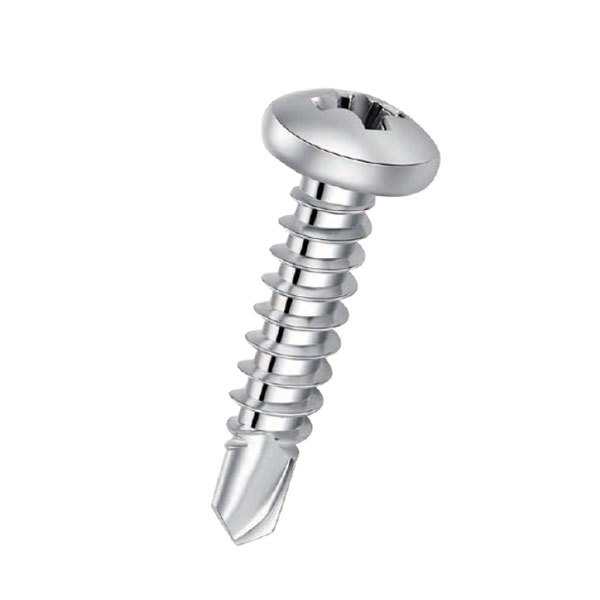Comprehensive Guide to Custom Self-Tapping Screws and Their Applications
A Comprehensive Guide to Custom Self-Tapping Screws
Self-tapping screws have become an essential component in various industries, especially where securing materials together without the need for pre-drilled holes is critical. This guide delves into what custom self-tapping screws are, their applications, and the factors to consider when selecting or designing them.
Understanding Self-Tapping Screws
Self-tapping screws are fasteners designed to tap their own hole in the material they are driven into. Unlike standard screws, self-tapping screws are engineered with a sharp, pointed tip that allows them to create a thread in the material, whether it’s metal, wood, or plastic. This feature eliminates the need for a pilot hole, saving time and labor in assembly processes.
The Importance of Custom Options
While standard self-tapping screws meet the requirements for many applications, custom self-tapping screws offer specific advantages for unique projects. Customization can include variations in length, diameter, thread type, coating, and material. Such specifics can enhance performance, durability, and corrosion resistance, catering to the particular needs of an application.
1. Length and Diameter The length and diameter of a screw are crucial factors that determine its capability to hold materials together effectively. Custom lengths can provide solutions for special applications that require extra grip or deeper penetration.
2. Thread Design The type of thread can significantly influence how well the screw performs in various materials. Coarse threads are typically used for softer materials like plastic and wood, while finer threads are ideal for harder materials like metals. Custom threading can be tailored for specific applications, ensuring optimum performance and hold.
3. Coatings and Materials The environment in which a screw operates plays a significant role in selecting the right fastener. Coatings such as zinc plating, powder coating, or even specialized coatings like PTFE can be added to enhance corrosion resistance. Selecting the appropriate material, whether stainless steel, carbon steel, or other alloys, is also fundamental to achieving the desired durability and performance.
4. Head Types The head of the screw can dictate how the screw is driven into the material and how it appears after installation. Common head types include flat, oval, round, and hex. Custom heads can provide a better fit for specific tools or aesthetic preferences.
Key Applications
custom self tapping screw guide

Custom self-tapping screws find applications across various industries, including construction, automotive, electronics, and manufacturing. For example
- Construction Used in structural applications where wood or metal components need to be secured quickly and reliably. - Electronics In devices and appliances, custom screws can ensure that components are secured tightly while maintaining the aesthetic integrity of the product. - Automotive The durability and strength of custom self-tapping screws are crucial in automotive manufacturing, where vibration and movement are prevalent.
Factors to Consider When Sourcing Custom Self-Tapping Screws
When sourcing custom self-tapping screws, several factors should be evaluated to ensure you receive a product that meets your needs
1. Manufacturer Expertise Look for manufacturers with experience in producing custom fasteners. Their expertise can help in selecting the right specifications to achieve desired results.
2. Material Quality Ensure that the materials used are of high quality and suitable for your application’s environment to prevent premature wear or corrosion.
3. Testing and Compliance Select a supplier that adheres to industry standards and conducts thorough testing on their products to guarantee their performance and safety.
4. Cost-Effectiveness While custom options may be more expensive than standard screws, assessing the long-term benefits they can provide in terms of efficiency and durability is crucial.
5. Lead Times Factor in the time it takes to get customized screws manufactured and delivered, as this can impact your project timelines.
Conclusion
Choosing the right self-tapping screw, especially a custom option, can significantly enhance your project's overall efficiency and effectiveness. By understanding the specifications, applications, and factors involved in sourcing these fasteners, you can make informed decisions that align with your project's specific needs. With the right custom self-tapping screws, you can achieve a secure, reliable, and long-lasting assembly.
-
Top Choices for Plasterboard FixingNewsDec.26,2024
-
The Versatility of Specialty WashersNewsDec.26,2024
-
Secure Your ProjectsNewsDec.26,2024
-
Essential Screws for Chipboard Flooring ProjectsNewsDec.26,2024
-
Choosing the Right Drywall ScrewsNewsDec.26,2024
-
Black Phosphate Screws for Superior PerformanceNewsDec.26,2024
-
The Versatile Choice of Nylon Flat Washers for Your NeedsNewsDec.18,2024










